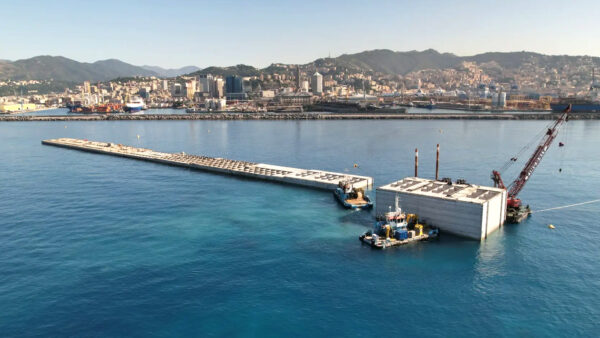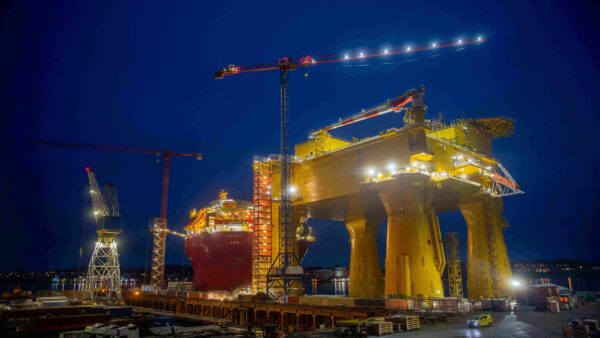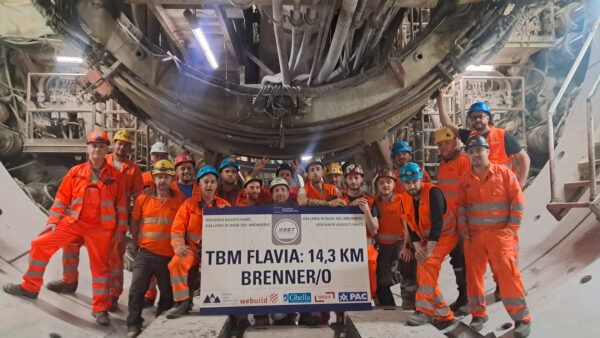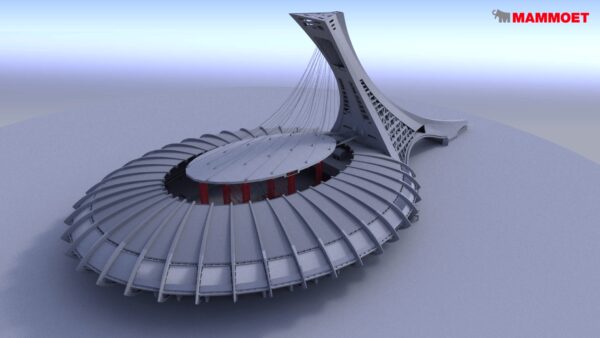Lithuania is rushing to complete its first liquified natural gas (LNG) terminal at the port of Klaipeda in order to end its total dependence on Russian gas.
On Thursday last week the Baltic state signed an LNG purchase deal with Norway’s state-owned oil and gas supplier, Statoil, for the supply of 540 million cubic metres of gas per year starting in 2015.
Key to Lithuania’s plan to break Russia’s monopoly is a special ship, a floating storage and regasification unit (FSRU) dubbed “Independence” (pictured), built in a South Korean shipyard and launched in February this year to sail to Klaipeda.
Litgas has entered into 12 non-binding purchase agreements with other suppliers that would enable it to buy gas on the global spot market–
The ship will receive gas by tanker and regasify it for distribution via a new pipeline network around Lithuania and beyond.
“It is a historic day for Lithuania,” said the country’s president, Dalia GrybauskaitÄ—, at the ship’s launch, adding that, “no one ever will blackmail us over gas prices or influence, through energy, our political or economic life.”
In a press statement the Lithuanian government claimed it was forced to pay Russia’s state-owned gas company, Gazprom, a “political price” for its fuel that it said was approximately 30% more than other EU member states.
Lithuania says the new terminal, which requires a new, purpose-built jetty, would enable it to supply gas to its Baltic neighbours, Latvia and Estonia.
Norwegian gas will not necessarily be cheaper than Russia’s when it starts flowing on the scheduled date of 1 January 2015. The price will be linked to the UK’s gas trading index, the NBP, and Lithuanian gas trading company Litgas said that based on the last four months’ prices, it could expect to pay around $382 per 1,000 cubic metres.
Lithuania now pays Russia $359 per 1,000 cubic metres, according to analysis by Reuters.
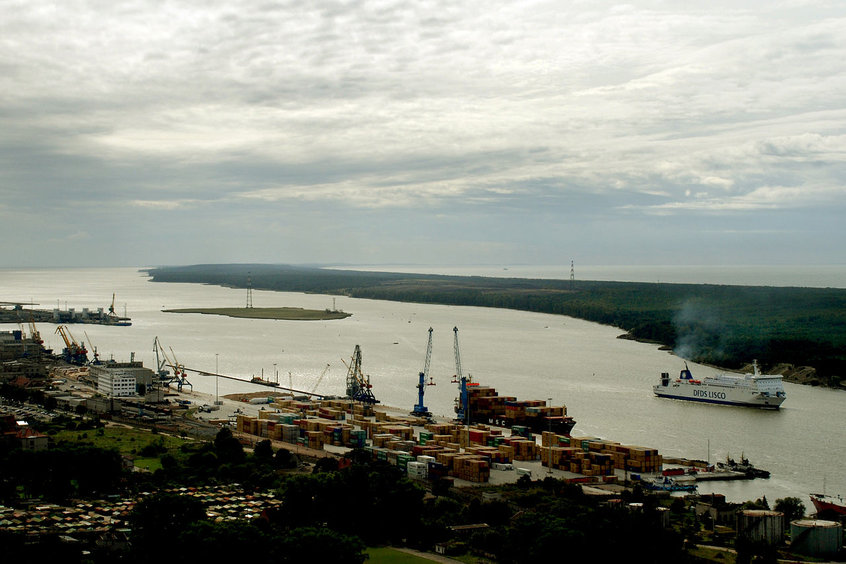
Site of Lithuania’s new liquefied natural gas terminal at Klaipeda Port (Kusurija/Wikimedia Commons)
But by diversifying supply Lithuania aims to break Gazprom’s strangle-hold. Until May this year it was paying around $465 per 1,000 cubic metres. According to Reuters, Gazprom cut the price at the threat of international arbitration.
On Thursday Litgas said it had entered into 12 non-binding purchase agreements with other suppliers that would enable it to buy gas on the global spot market.
“This strategic contract will help to ensure the availability of an alternative natural gas import source which will enable us and other Lithuanian companies to procure natural gas on international markets from various suppliers at any time,” said Dominykas TuÄkus, general manager of Litgas.
As the Ukraine crisis continues, other Baltic states dependent on Russian gas, including Poland, are pushing ahead with plans for LNG terminals of their own.

